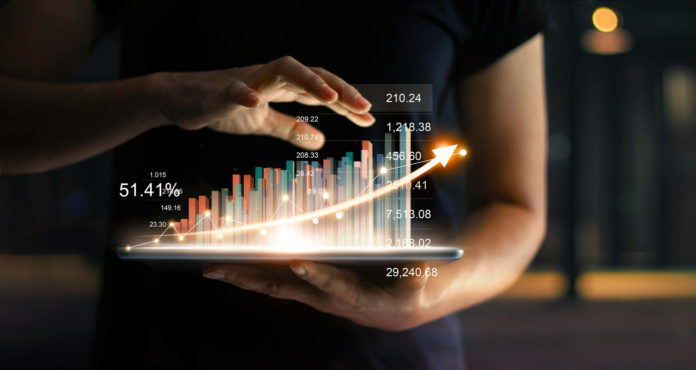Nowadays, digital technology is everywhere. Each of us relies on some form of digital technology for many processes and activities, such as transportation, communication, education, without even thinking about the complexity of the technology lying behind these processes. Digitalization has simply become a substantial part of us, both as individuals and as a society.
Digital transformation is happening so quickly and in so many directions that sometimes, even the experts working on it don’t grasp it completely. However, according to latest achievements, some of digital transformation trends in 2020 are already announced or can be predicted, such as 5G cellular network, AI, AR/VR, etc.
5G Network
An abbreviation “5G” stands for “fifth generation” cellular network. Compared to the broadly used 4G LTE network, it introduces significantly faster connections, as well as a higher capacity and throughput. Although the speed of the fifth-generation cellular network will vary depending on the geographical location, network provider, or the device itself, it is announced that the estimated downlink peak data rate will hit 20Gbps, while the uplink rate will hit 10Gbps. The real-world data transfer speed is estimated to reach 10Gbps/s in the near future. The main strength of a 5G network lies in its low latency, which goes between 1 and 4 milliseconds.
5G will have a wide spectrum of potential usage, starting from average Internet users and up to complex real-time communication between devices and machines. Such large data transfer rate with such a low latency will provide you to enjoy every web content, as well as to play online games, such as
free slot machine games without downloading or registration, without having to bother about the network connection bugs.
Blockchain
Although blockchain technology isn’t really a trend because it has been present for some time now, its expansion beyond cryptocurrencies is the thing that is trendy about it. The fact that the best explains the popularity of the blockchain technology is that Amazon is currently working on the new subscription-based blockchain service platform. And they are not the only one trying to implement blockchain in products or services. The same thing goes at Samsung, Alibaba, IBM, and Microsoft.
Because it provides decentralization, transparency, integrity and absolute security, blockchain technology has various potential usage:
- Health sector (medical data transfer)
- Voting
- Personal digital Identification
- Internet of Things (IoT)
- Asset trading, etc.
AI and Machine Learning
This is probably the trendiest thing in the digital transformation nowadays. It has been prioritized by the sales and marketing sectors more than any other enterprise department today. This is mostly because of the fact that AI and machine learning technology can be used for advanced algorithms dedicated to in-memory and in-database predictive analytics, which will be used to thoroughly predict even the most complex business models.
However, AI and machine learning have a broad spectrum of potential usage. Some of it is happening right now, without you even being aware of it. One of the companies that rely on machine learning processes is a popular transportation company Uber. The company uses ML for precise navigation and estimated time calculation.
AR
Augmented reality is almost as trendy as AI. It is because of the fact that it also has a wide range of potential usage. It is especially popular with gamers, while it provides a whole new level of gaming. However, it can also be used not only for fun. It has applications in medicine, where it can be used for medical training, especially in surgery. It can also find the purpose in schools and other forms of education, art (modelling and design), automotive industry (voice assistants, autonomous cars), etc.
Privacy
Since data analytics is growing stronger, the EU has established a General Data Protection Regulation, which will increase the security of personal information. All companies are obliged to adopt total transparency and privacy, as well as to allow users to enter or leave a data collection scheme created by the company easier than before. It only remains to be seen whether this regulation is to become a worldwide standard.










